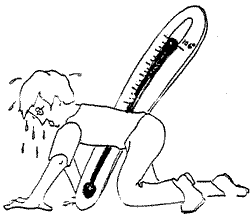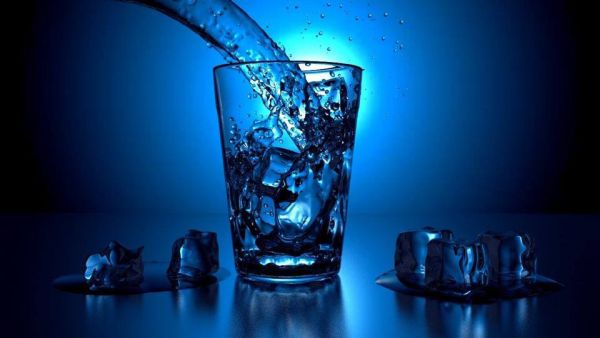Heat exhaustion is a major syndrome related to heat which is often followed by a mild heat cramp and eventually results in a life-threatening heatstroke that may cause major symptoms such as confusion, nausea, coma and even death.
Signs of symptoms may occur suddenly, often during strenuous exercises, heavy labour under the sun, insufficient salt and fluid intake or profuse sweating.

Risk factors
- Frequent illnesses
- Diuretics, laxatives, antidepressants, antihistamine and other similar medications
- Poor blood circulation
Signs and symptoms
Signs and symptoms are similar to those of shock.
- Dizziness
- Headaches
- Nausea and vomiting
- Feeling faint
- Profuse sweat
- Low blood pressure
- Heat cramps
- Dark urine
- Fatigue and weakness
- Pale, cool and damp skin
- Rapid, yet weak heartbeat
- Low-grade fever
- Loss of appetite
Treatment
If the any of the symptoms of heat exhaustion appear due to physical excursion, or physical activity under the sun, follow these steps:
1. Cool the person down
- Take the person to a cool environment, away from the sun.
- If the area is not air conditioned, fan the person with a newspaper or allow him to rest near a fan.
- Remove any unnecessary clothing and loosen tight clothing.
- Spray cool water on the person’s body. Do NOT submerge his body in cold water. Place cool, moist towels on his body and apply ice packs on the neck, groin and armpits.
2. Rehydrate the casualty.
Give the casualty something cool to drink. This can be a glass of cool vegetable or fruit juice or a beverage that does not contain caffeine or alcohol. You may also give him cool water.
3. Take care of the person
- Make sure the person lies down and allow his legs and feet to elevate slightly to encourage blood flow with gravity.
- Take good care of the person and try to alleviate symptoms. A heat exhaustion may result in a more severe, heat stroke. If heat stroke takes place, the person will experience changes in personality such as irritability and confusion, have a temperature above 104 F and may also faint. If the casualty is showing signs of heat stroke, call emergency medical help immediately.
Prevention
- Avoid over consumption of alcohol
- Quit smoking
- Have a healthy and nutritious diet
- Avoid driving after consumption of alcohol
- Supervise activities of children
- Take lots of fluids, including water and juices containing vitamin C
- Avoid diuretics such as caffeine
Learn More
To learn more about heat exhaustion and other environmental emergencies take a first aid course through one of our St Mark James training providers. Check out our “locations” page for more information about finding a provider near you. Training partners are located in Vancouver, Victoria, Edmonton, Calgary, Red Deer, Saskatoon, Regina, Winnipeg, Ottawa, Toronto, Windsor and Halifax.

